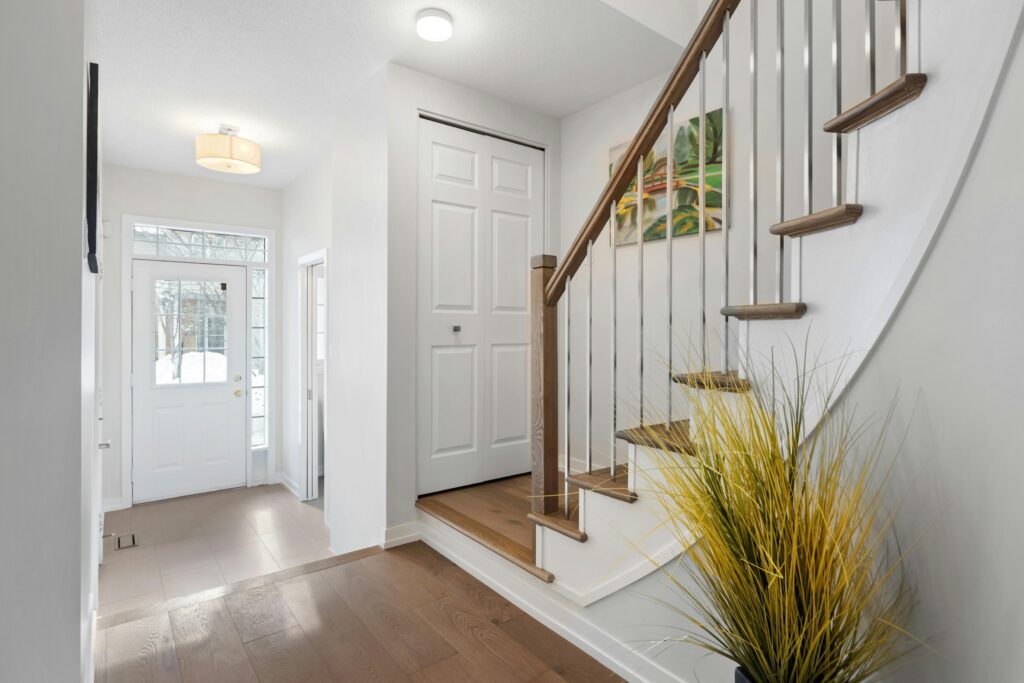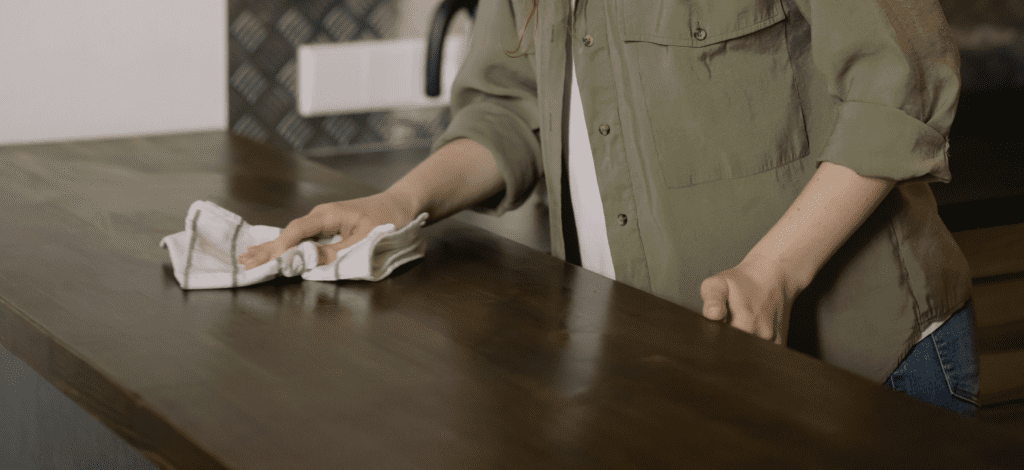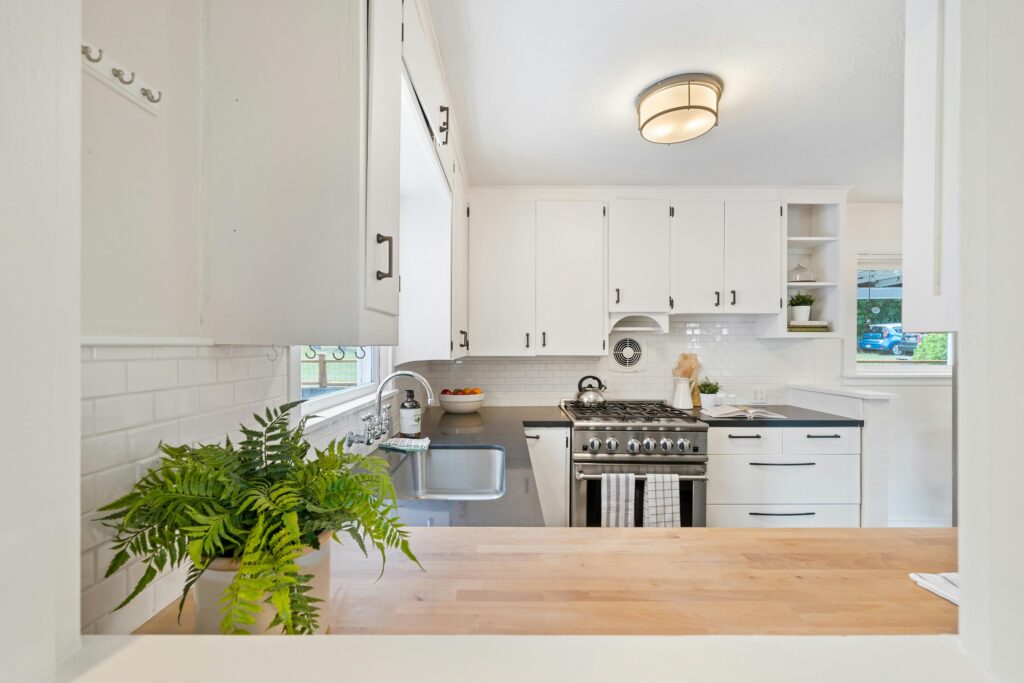January 29, 2024 | Homeowners
Should I Sell My Current Home Before Buying My Next One?

Should I sell my current home before buying my next one? Or do I buy a home and then sell my current home?
This is one of the most common questions that homeowners ask and one of the most challenging for homeowners to navigate through. For homeowners, this decision involves potential financial strain, the uncertainty of housing markets, and personal timelines.
Don’t try to make this decision on your own without being informed about the pros and cons that you should be considering. This article directly addresses the strategic considerations and trade-offs that will empower your decision-making ability.
Curious about the dynamics of being and selling in today’s market? Click here to find out how you can get the upper hand in your purchase or sale.
Why Does Order Matter?
The decision to sell your house before buying a new one requires careful consideration of both real estate market conditions and your personal financial situation. In a strong seller’s market, where demand outstrips supply, selling might be a quicker and more reliable timeline. However, in a buyer’s market, with fewer buyers, the sale of your home could take longer than expected, especially if the home isn’t priced and marketed properly.
Your financial position, including your home equity and home equity line, also plays a pivotal role, as it influences your ability to potentially manage two mortgages and the down payment for your new home.
Curious about some of the best communities in the North of Boston area? Check out these blog posts.
- What to Know Before Moving to Lexington, MA
- Why Winchester, MA is Perfect For Healthcare Workers
- Top Suburbs North of Boston
Benefits of Selling First
Selling your home before buying a new one can significantly ease your financial burdens. If you sell your home first, the intimidating prospect of juggling two mortgage payments at once can be avoided. This approach can offer financial relief and a more calculated strategy for entering into your next mortgage.
Moreover, selling first provides you with a clearer budget for your next home. A clear understanding of the funds obtained from your home sale can enable better decision-making and more accurate financial planning in the housing market. For instance, we work with several clients who aren’t confident in their ability to put an offer in on a home until they’ve received an accepted offer on their existing home.
Selling your house first also strengthens your position when making an offer on a new home, which is extremely beneficial in a seller’s market where home-buying competition is high. When demand outweighs supply, you can also have more confidence in your home selling quickly and with the actual cash from your home sale, you can submit stronger, more appealing offers with fewer financing contingencies, especially in a seller’s market. When our home-selling clients review multiple offers, one of the primary things they look at are the contingencies and how “clean” the offer is. Offers with a home sale contingency present a significant risk and can often give a seller pause prior to accepting.
Drawbacks of Selling First
Though selling first offers several advantages, it also introduces some challenges. Many homeowners worry about where they will be able to live until they find and close on their new home.
There are several solutions that we’ve implemented to help our clients avoid this issue. One of the primary solutions that our clients have tremendous success with is a leaseback (also referred to as a Use and Occupancy Agreement). In a leaseback agreement, the seller of a property sells it and then leases it back from the new owner. This allows the seller to access funds while retaining the right to occupy the property for a predetermined duration. A leaseback can provide a homeowner up to 2 months to live in their home which gives them a longer runway to find and close on their next home.
If the home is priced properly to generate a high level of demand, sellers are often able to negotiate a longer closing timeline, sometimes as far out as 3 to 4 months. In certain instances, our team has been able to combine an extended closing timeline with a leaseback in order to provide our clients an additional 5 to 6 months to find their next home, while also having the funds available to move quickly when they find the right home.
In order to have this type of flexibility, hiring a real estate professional that is knowledgeable about the market and able to implement a comprehensive marketing plan is critical in order to make sure that the home generates enough demand in order for the seller to have the leverage they need. When our team sits down with a client at the initial strategy consultation, we make sure to understand our client’s timeline and goals and then create a customized strategy to ensure we provide our clients as much flexibility as they need in order to move forward confidently.
Beyond a leaseback and extended home closing timeline, there are also several options for temporary housing. Whether it is a short-term rental, Airbnb, staying with family, friends or even going on vacation, there are several options that can be exercised so that you don’t need to worry about not having a place to live while transitioning between properties.
The Flip Side: Buying Before Selling
Alternatively, you might contemplate purchasing your next home prior to selling your current one. This strategy also comes with its unique set of benefits and risks. Choosing to buy before selling can offer a few benefits, including a prepared residence to transition into promptly after the sale, the opportunity to carefully select the right home without feeling pressured, and more control over your moving schedule and timeline.
As a result of buying first, moving difficulties are reduced, however, the home selling process can become more stressful, as the home seller is often more under the gun to have the home sell quickly.
Drawbacks of Buying First
These potential hazards of buying a new house before selling your current house encompass the possibility of carrying two mortgages if the current home takes time to sell, and the risk of having to sell the current home for less than anticipated if property prices drop.
Market conditions in real estate, like a strong seller’s market, greatly influence the decision to buy before selling. It can affect both the potential benefits and the potential risks. Therefore, understanding the current market conditions is essential, as is having a professional real estate advisor with local market knowledge.
Buying first can decrease your bargaining leverage as a buyer, as the homeowner of the property you want to buy might be leery of accepting an offer from a buyer if they still have a home that they need to sell.
Another risk is the difficulty in obtaining a new mortgage. Lenders take into account existing mortgage payments when assessing the debt-to-income ratio, a crucial factor in mortgage approval. A substantial amount of debt from multiple properties may complicate the qualification for a new mortgage.
Looking to optimize the purchase of your next property? Explore these blogs for even more tips.
- 5 Things to Consider to Get Your Offer Accepted
- How to Maximize the Value of Your Home Purchase
- What to Know Before Buying a Second Home
Do’s & Don’ts of Buying and Selling at the same time
Successfully managing the simultaneous buying and selling of homes requires meticulous planning and a considerable amount of strategic thinking. One important tip is to sync your closing dates as best as you can. This can facilitate a seamless transition from one property to another.
It is also vital to have a contingency plan in place. Transactions can fall through or get delayed, despite best efforts. Therefore, it’s advisable to make arrangements for a leaseback or secure temporary housing.
Whenever possible, it’s advantageous to have the same team of professionals assisting you on both the home purchase and sale. This includes your real estate attorney and real estate professional. By having the same team assist you on both transactions, communication is streamlined and the potential for miscommunication and dates being missed is limited.
Finally, when buying and selling properties concurrently, it is important to enlist the services of an experienced real estate agent. Using the same real estate agent can:
- Utilize their expertise and connections to align closing dates
- Manage unforeseen obstacles
- Navigate the intricate procedures associated with buying and selling properties concurrently.
Summary
In conclusion, whether to sell before buying or vice versa, depends on various factors, including market conditions and personal financial situation. While both options have their pros and cons, strategies like bridge loans and leasebacks can ease the financial strain. Remember, enlisting the services of an experienced real estate team can make the process much smoother. After all, this situation is temporary, and soon you’ll be settled into your new home.
Thinking of buying, selling, or both? Discover Andersen Group Realty’s unparalleled advisory services today. Click here to send us an email or call 781-729-2329 to get started.

